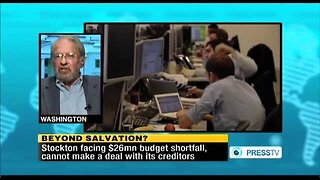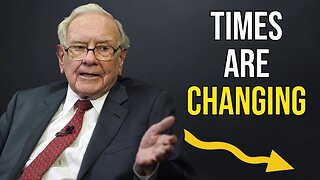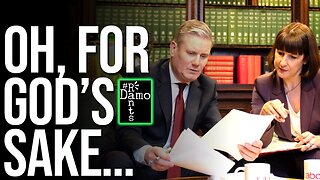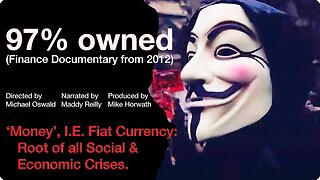Speculation, Shadow Banking & Property
Nothing in this content should be treated as tax, legal, investment or financial advice. Full details here: https://www.retirementplanb.com/disclaimers
Britain's Chancellor George Osborne has insisted that the government was moving on the right economic path, despite reports of the worst double-dip recession in over 50 years.
The Chancellor's defense of his record came irrespective of disappointing official figures released on Wednesday that showed Britain is enduring the longest double-dip recession for more than 50 years, the Guardian reported.
George Osborne came under increasing pressure to lay out a plan B for the economy after shock figures from the Office of National Statistics (ONS) revealed the economy shrank by a worse-than-expected 0.7 percent between April and June.
Rachel Reeves, the shadow chief secretary to the Treasury, tweeted that the deepening double-dip recession was a "disastrous verdict on George Osborne's failed plan".
But Osborne blamed "deep-rooted economic problems" for the figures and defended his policies to get the economy back on track.
Press TV has conducted an interview with Simon Dixon, author of "Bank to the Future", to further discuss the issue. The following is an approximate transcript of the interview.
Press TV: The weak GDP data prompted finance minister George Osborne who said the economy had "deep-rooted" problems. What do you think are these "deep-rooted" problems that Mr. Osborne is talking about are?
Dixon:...But what we are seeing at the moment is an ever increasing reliance upon debt and a nation that cannot afford to repay the debt and are living month to month in order to repay the mortgages and the debts that they have taken out to the banks.
But what we are not addressing at the moment and what Mr. Osborne I am sure is not looking at is the fact that he wants to stimulate business as usual, he wants to increase debt in order to get the economy going again but is where that money actually gets directed if you redirect that back into pushing up property prices you are going to make it harder for people.
If you redirect that for stimulating consumer debt just as banks do at the moment, then you are going to end up in a harder situation.
The money has to be directed into employment creating growth into small businesses which make up almost all of the employment about 60 percent of the employment in the UK.
Press TV: Redirect that into as you mentioned employment creating growth does not help when you have the Diamond Jubilee that costs billions of pounds, does it?
Dixon: Well it is not the government that needs to produce the money, it is reforming the way the banking is actually structured because almost all money comes in the form of loans and our current economy is all debt.
And so if that debt is going to be directed anywhere, then we need to reform the banks in a way where the money actually gets to productive use like banks were originally for rather than speculation, shadow banking and pushing up property and the other stuff which only leads to an over indebted nation.
Press TV: Then again Diamond Jubilee and wet weather have been blamed for this deepening recession. What is your reaction when you heard that piece of news?
Dixon: Could you say that again?
Press TV: The Diamond Jubilee and wet weather, two reasons why they have been sided for contributing to this deepening recession. Do you agree?
Dixon: Well obviously there is market forces but we are dealing with a much greater trend that goes beyond any kind of Olympics that we are seeing in the UK right now or any kind of weather issues.
Of course it affects certain businesses but it does not affect other businesses so that is a good thing for other businesses and is definitely a scapegoat not looking at the greater issues which is all down to our banking system right now.
Press TV: But the quick solution seems to be austerity perhaps you can tell us why austerity does not work?
Dixon: Well austerity is not going to work because we have to remember that we have got an economy right now which is reliant upon ever increasing levels of consumer debt, ever increasing levels of corporate debt and also when those do not work, when that max out on the credit cards is ever increasing levels of government debt.
So we have to stop pretending that we are actually trying to pay down our debt because the effect of ever paying down the debt is a decrease in the economy, is a decrease in the money supplies.
-
 19:50
19:50
Simon Dixon
11 years agoBanking Corruption - @MaxKeiser & @SimonDixonTwitt provide commentary
167 -
 1:33:48
1:33:48
BossBlunts
2 years agoStocks & Futures Slide, Ruble Surges. #AMC #GME REAL TALK ON OVERLEVERAGED BANKS $1.4 quadrillion
38 -
 10:50
10:50
Cooper Academy
3 years ago $0.01 earnedWarren Buffett Is Selling Out Of His Stocks & The Reasons Behind It Are Scary
65 -
 11:22
11:22
KernowDamo
2 months agoStarmer announces his plan for growth & it's as stupid as we feared
973 -
 2:15
2:15
What If Everything You Were Taught Was A Lie?
1 year agoWhole banking system is a scam and fractional lending is just part of the problem ?
574 -
 57:30
57:30
BossBlunts
2 years agoS&P 500 PE Ratio HUGE SELL SIGNALS! 💥US Treasury DEFAULT!💢Federal Reserve H8 Reports AMC & GME MOASS
100 -
 10:26
10:26
Cooper Academy
4 years agoBuffett Has Not Bought Any Stocks In 2020 & The Reasons Behind It Are Frightening
30 -
 27:50
27:50
ITM Trading
10 months ago $0.01 earnedYour Money & Investments: The Bait and Switch Ponzi Scheme
22 -
 2:10:22
2:10:22
RAVries
1 year ago97% Owned - ‘Money’, I.E. Fiat Currency: Root of all Social & Economic Crises. | Finance Documentary from 2012
1.18K2 -
 0:46
0:46
yulandadavis71
8 months agoUnlocking Shadow Banking: Investing Insights & Financial News #shadowbanking#china
26